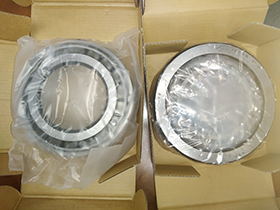

The incidence of counterfeit bearings is definitely on the increase in South Africa. In fact, the Hawks team recently discovered a large quantity of fake bearings valued at over R5 million stored in a warehouse in Johannesburg.
“As global trade increases, the issue of counterfeit goods continues to affect all aspects of our economy. BMG – the authorised distributor of a wide range of engineering consumables − is concerned about the proliferation of counterfeit merchandise and the dangers associated with using inferior goods,” says business unit manager, Carlo Beukes. “BMG has secured exclusive supply, service and distribution agreements with some of the world’s most respected manufacturers and our commitment to suppliers and customers is to respect the integrity of their brand. In response to the recent discovery of fake NSK bearings, we wish to reassure our customers that all NSK products procured from BMG are genuine components. BMG is a preferred and authorised distributor for NSK and we have had a longstanding relationship with the company since 1976.”
BMG is a member of the World Bearings Association (WBA) and in conjunction with bearings manufacturers, a useful app has been developed that enables identification of a counterfeit product by scanning QR codes on the packaging. Beukes adds that BMG encourages consumers to take special care when sourcing products from non-authorised suppliers and highlights a few key aspects to consider regarding the legitimacy of product integrity.
If the price is much lower than from an official source, this should be a warning about where the product comes from. Is it an original product, has it been refurbished, or is it faulty or outdated stock?
Does the packaging have the correct identification markings in terms of the logo, branding, stickers and barcoding? If a seal over the box has been tampered with, this is a cause for concern. The authenticity of the product can be verified by the manufacturer or official distributor and by using the QR code application. When the product is inspected, does it have the correct part number etched? Is the part number an official manufacturer’s part number? This can be verified by the manufacturer.
How professional is the machining of the product? The quality of the cage material, grinding marks and finishing are good indicators of whether a bearing is from a legitimate source or not.
He goes on to explain that the problems associated with counterfeit bearings include poor manufacturing design and quality standards, which means reduced service life of the component, increased downtime of machines, compromised productivity, and greater component and maintenance costs. Although the cost of a sub-standard bearing is lower than a quality branded bearing, the costs incurred when this bearing fails are substantial.
In the event of bearing failure, it is often not simply a case of replacing the failed part. Firstly the operator has to consider lost production time while equipment is not functional, and secondly the failed bearing can cause serious damage to machinery. For example, a counterfeit bearing installed in an electric motor will not only result in the loss of the part, but will also damage the motor itself as components like coils, seals and the shaft are often damaged as well and need to be replaced.
The BMG team encourages consumers to take special care when sourcing products from non-authorised suppliers. The link for this is www.stopfakebearings.com
| Tel: | +27 11 620 1500 |
| Fax: | 086 670 3337 |
| Email: | [email protected] |
| www: | www.bmgworld.net |
| Articles: | More information and articles about Bearing Man Group T/A BMG |
© Technews Publishing (Pty) Ltd | All Rights Reserved